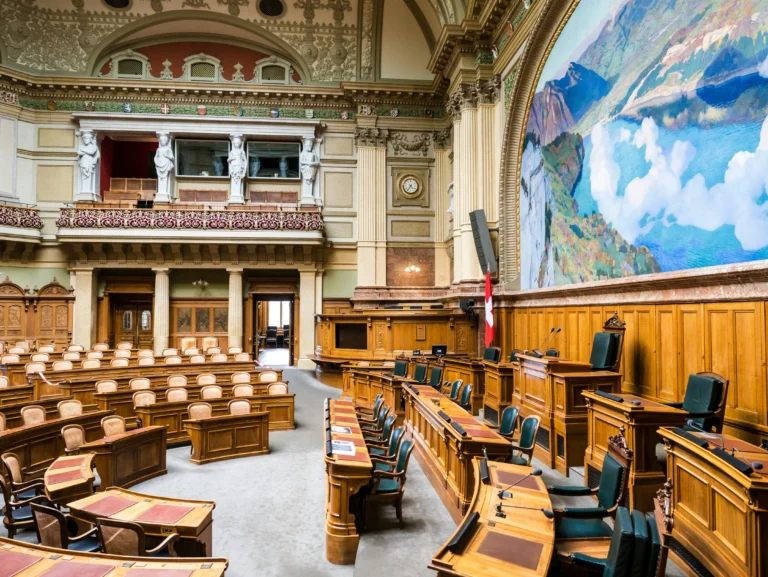Political Instability: Causes, Consequences, and Global Implications

Reading Time
SHARE
Political instability refers to the unpredictability and uncertainty within a government or political system, often resulting in social unrest, economic turbulence, and weakened governance. It arises when a country’s political structure is fragile, leadership is contested, or significant internal or external pressures destabilize the ruling system. While political instability can take many forms—such as coups, civil wars, mass protests, or leadership vacuums—its impacts on society, economy, and international relations are profound.
Causes of Political Instability
Weak Institutions and Governance:
At the heart of political instability is often weak or failing institutions. When a government lacks the infrastructure to enforce laws, uphold justice, and deliver essential services, it opens the door for corruption and power struggles. Weak institutions lead to poor governance, which in turn can lead to a legitimacy crisis, where the public no longer trusts the governing bodies. This lack of trust can foster an environment ripe for political upheaval.
Economic Inequality and Poverty:
Economic inequality has been a major driver of political unrest throughout history. When wealth is concentrated in the hands of a few while a large portion of the population struggles with poverty, frustration builds. Citizens are likely to feel disenfranchised and excluded from the benefits of economic growth. As inequality grows, the social contract between the government and its citizens weakens, creating a situation where political upheaval can emerge, whether through protests, strikes, or more organized rebellion.
Ethnic and Sectarian Divides:
In many countries, political instability is exacerbated by deep-seated ethnic, religious, or sectarian divisions. When one group feels marginalized or oppressed by the dominant political or ethnic group, tensions often rise, sometimes resulting in violent conflict. Historical grievances, colonial legacies, and unequal representation in government can fuel long-lasting divisions that weaken a country’s internal cohesion.
Corruption:
Political corruption—such as bribery, cronyism, and embezzlement—erodes public trust in the political system. When citizens perceive their leaders as self-serving and indifferent to the public good, they may resort to protest or support radical political movements that promise reform. Corruption also inhibits economic development, creating a vicious cycle that deepens instability. When public resources are diverted for private gain, it creates inefficiency and limits the state’s ability to deliver essential services, which further alienates the population.
Foreign Intervention:
External interference by foreign powers can also destabilize governments, especially in weaker states. Such intervention can come in the form of military action, economic sanctions, or political influence. For instance, the Cold War saw superpowers like the United States and the Soviet Union meddle in the affairs of smaller nations, often exacerbating internal conflicts. More recently, foreign interventions in places like Libya and Iraq have had lasting destabilizing effects. These external pressures often compound pre-existing internal divisions, making it harder for countries to find a path to political stability.
Consequences of Political Instability
Economic Decline:
Political instability typically triggers economic downturns. Investors are hesitant to invest in politically unstable environments due to the unpredictable nature of government policies and the potential for sudden regulatory changes. A lack of investment slows economic growth and leads to job losses. Additionally, governments often mismanage public resources during periods of instability, exacerbating budget deficits and inflating national debt. The resulting economic hardship further fuels political unrest, as citizens become increasingly dissatisfied with their living conditions.
Social Unrest and Violence:
When political systems break down, societies often descend into chaos. Widespread protests, strikes, and even armed conflict can erupt, leading to mass casualties and the displacement of people. Civil wars, fueled by ethnic or political grievances, can create power vacuums that are difficult to fill. In extreme cases, states may fail entirely, leading to humanitarian crises where governments cannot provide basic services or security. These crises often result in refugee flows and the spread of violence to neighboring regions, escalating instability across borders.
Weakening of Democracy:
Political instability can undermine democratic norms and institutions, leading to authoritarianism or military rule. Leaders who come to power during times of instability often prioritize maintaining control over preserving democratic principles. In some cases, democratic elections are postponed or canceled, civil liberties are suspended, and political opposition is stifled. This weakening of democracy not only damages the legitimacy of the government but also sets a dangerous precedent for future leaders.
Global Implications:
Political instability in one country can have wide-reaching effects on the international community. In a globalized world, economic turmoil in one nation can impact global markets, particularly if the country in question is a major player in trade or energy production. For example, political instability in oil-rich nations can cause global fluctuations in oil prices. Additionally, political unrest often leads to increased migration, as citizens flee conflict or economic hardship, putting pressure on neighboring countries and straining international relations.
Humanitarian Crises:
In the wake of political instability, citizens often face dire humanitarian conditions. Basic services, such as healthcare, education, and access to clean water, can break down, leading to widespread suffering. Moreover, violence and instability can result in mass displacements, creating refugee crises that strain global resources and exacerbate regional tensions.
Addressing Political Instability
Efforts to address political instability require both domestic and international strategies. Domestically, building strong, transparent institutions that are accountable to the public is essential. This includes investing in the rule of law, reducing corruption, and ensuring that all citizens have access to essential services and economic opportunities.
Internationally, cooperation between nations can help stabilize politically fragile states. This might involve diplomatic efforts, economic aid, or peacekeeping missions. It is also important for foreign powers to respect the sovereignty of nations and avoid meddling in their internal affairs, as external intervention often exacerbates instability.
Political instability is a complex issue that arises from a variety of factors, including weak governance, economic inequality, and external interference. Its consequences are far-reaching, impacting not only the country in question but also the global community. Addressing political instability requires a multifaceted approach that strengthens institutions, promotes inclusive governance, and fosters international cooperation to mitigate the risks posed by unstable political systems.










